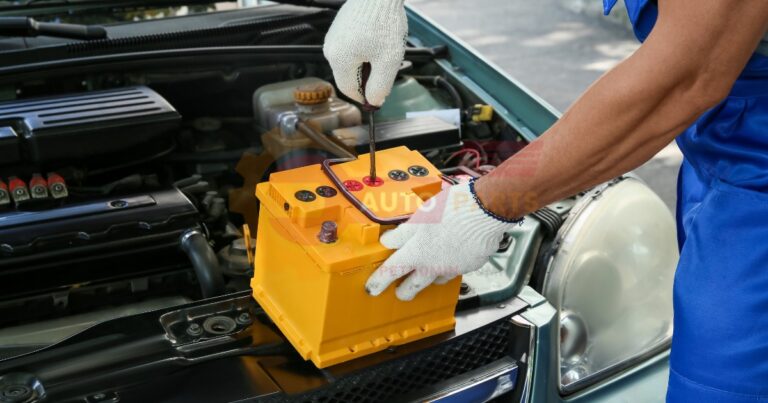In the rapidly evolving world of transportation, electric buses are becoming a cornerstone of sustainable urban mobility. As cities strive to reduce emissions and improve air quality, the focus on bus fleet battery management, cost reduction, and operational efficiency has never been more critical. This article delves into strategies and solutions that optimize electric bus fleet performance, enhance battery life, reduce operational costs, and improve fleet management.
Optimizing Electric Bus Fleet Performance
Telematics and Smart Technology Integration
Telematics and smart technology are revolutionizing the way bus fleets operate. By integrating these technologies, fleet managers can monitor vehicle performance in real-time, ensuring optimal battery usage and reducing downtime. This data-driven approach allows for proactive maintenance, minimizing unexpected breakdowns and extending the lifespan of the fleet.
- Real-time monitoring of battery health and performance
- Proactive maintenance scheduling
- Enhanced route efficiency through data analysis
Route Planning and Optimization
Effective route planning is essential for maximizing the efficiency of electric bus fleets. By analyzing traffic patterns and passenger demand, fleet operators can design routes that minimize energy consumption and reduce travel time. This not only enhances the passenger experience but also contributes to significant cost savings.
- Analysis of traffic patterns for efficient routing
- Reduction in energy consumption and travel time
- Improved passenger satisfaction
Charging Infrastructure Management
Managing charging infrastructure is crucial for the seamless operation of electric bus fleets. Ensuring that charging stations are strategically located and well-maintained can prevent delays and ensure that buses are always ready for service. This requires careful planning and investment in reliable charging solutions.
- Strategic placement of charging stations
- Regular maintenance of charging infrastructure
- Investment in reliable and efficient charging solutions
Enhancing Battery Life and Efficiency
Battery Analytics and Health Monitoring
Battery analytics and health monitoring are vital for maintaining the efficiency of electric bus fleets. By continuously assessing battery performance, fleet managers can identify potential issues before they become critical, ensuring that buses remain operational and efficient.
- Continuous assessment of battery performance
- Early identification of potential issues
- Prolonged battery lifespan
Temperature Management in Extreme Climates
Extreme temperatures can significantly impact battery performance. Implementing temperature management strategies, such as thermal insulation and active cooling systems, can help maintain optimal battery conditions, ensuring consistent performance regardless of the climate.
- Implementation of thermal insulation
- Use of active cooling systems
- Consistent battery performance in all climates
Predictive Maintenance Strategies
Predictive maintenance strategies leverage data analytics to forecast potential failures and schedule maintenance before issues arise. This approach reduces downtime and maintenance costs, ensuring that the fleet operates smoothly and efficiently.
- Data-driven forecasting of potential failures
- Reduced downtime and maintenance costs
- Smooth and efficient fleet operation
Reducing Operational Costs for E-Bus Fleets
Energy Consumption Optimization
Optimizing energy consumption is key to reducing operational costs for electric bus fleets. By implementing energy-efficient driving practices and utilizing regenerative braking systems, fleet operators can significantly cut down on energy usage and costs.
- Implementation of energy-efficient driving practices
- Utilization of regenerative braking systems
- Significant reduction in energy usage and costs
Maintenance Cost Reduction
Reducing maintenance costs is essential for the financial sustainability of electric bus fleets. By adopting predictive maintenance strategies and using high-quality components, fleet operators can minimize repair expenses and extend the lifespan of their vehicles.
- Adoption of predictive maintenance strategies
- Use of high-quality components
- Minimization of repair expenses
Lifecycle Cost Analysis
Conducting a comprehensive lifecycle cost analysis helps fleet managers understand the total cost of ownership of electric buses. This analysis considers factors such as purchase price, maintenance, energy consumption, and resale value, providing a clear picture of the financial implications of fleet operations.
- Comprehensive analysis of total cost of ownership
- Consideration of purchase price, maintenance, and energy consumption
- Clear understanding of financial implications
Improving Fleet Management with EV Charging Solutions
Smart Charging Systems
Smart charging systems are essential for efficient fleet management. These systems optimize charging schedules based on energy demand and availability, ensuring that buses are charged during off-peak hours to reduce costs and prevent grid overload.
- Optimization of charging schedules
- Charging during off-peak hours
- Prevention of grid overload
Load Balancing and Peak Shaving
Load balancing and peak shaving are strategies used to manage energy demand and reduce costs. By distributing energy usage evenly and avoiding peak demand charges, fleet operators can achieve significant savings on their energy bills.
- Distribution of energy usage
- Avoidance of peak demand charges
- Significant savings on energy bills
Integration with Renewable Energy Sources
Integrating renewable energy sources, such as solar or wind power, into the charging infrastructure can further reduce operational costs and enhance sustainability. This approach not only lowers energy expenses but also reduces the carbon footprint of the fleet.
- Integration of solar or wind power
- Reduction in operational costs
- Enhanced sustainability and reduced carbon footprint
Maximizing ROI for Electric Bus Fleets
Total Cost of Ownership Analysis
A thorough total cost of ownership analysis is crucial for maximizing the return on investment for electric bus fleets. This analysis considers all costs associated with the fleet, including purchase, maintenance, and energy, providing a comprehensive view of the financial benefits of electric buses.
- Consideration of all associated costs
- Comprehensive view of financial benefits
- Maximization of return on investment
Government Incentives and Grants
Government incentives and grants can significantly offset the costs of transitioning to electric bus fleets. By taking advantage of these financial aids, fleet operators can reduce initial investment costs and accelerate the adoption of electric vehicles.
- Utilization of government incentives and grants
- Reduction of initial investment costs
- Acceleration of electric vehicle adoption
Operational Savings Over Time
Electric bus fleets offer substantial operational savings over time. With lower fuel and maintenance costs compared to traditional diesel buses, electric fleets provide a cost-effective solution for sustainable urban transportation.
- Lower fuel and maintenance costs
- Cost-effective solution for urban transportation
- Substantial operational savings
Overcoming Challenges in E-Bus Fleet Operations
Range Anxiety and Route Planning
Range anxiety is a common challenge in electric bus operations. By implementing effective route planning and ensuring adequate charging infrastructure, fleet operators can alleviate this concern and ensure reliable service.
- Implementation of effective route planning
- Ensuring adequate charging infrastructure
- Alleviation of range anxiety
Driver Training and Adaptation
Driver training is essential for the successful operation of electric bus fleets. By providing comprehensive training on energy-efficient driving practices and vehicle handling, fleet operators can ensure that drivers are well-equipped to operate electric buses efficiently.
- Comprehensive training on energy-efficient driving
- Training on vehicle handling
- Well-equipped drivers for efficient operation
Infrastructure Scalability
Scalability of infrastructure is crucial for the expansion of electric bus fleets. By investing in scalable charging solutions and infrastructure, fleet operators can accommodate future growth and ensure the long-term success of their operations.
- Investment in scalable charging solutions
- Accommodation of future growth
- Long-term success of operations
Future Trends in Bus Fleet Battery Management
Vehicle-to-Grid (V2G) Technology
Vehicle-to-grid (V2G) technology is an emerging trend in bus fleet battery management. This technology allows buses to return energy to the grid during peak demand, providing a new revenue stream for fleet operators and enhancing grid stability.
- Return of energy to the grid
- New revenue stream for fleet operators
- Enhanced grid stability
Artificial Intelligence in Fleet Optimization
Artificial intelligence is transforming fleet optimization by providing advanced data analytics and predictive insights. This technology enables fleet operators to make informed decisions, improving efficiency and reducing costs.
- Advanced data analytics and predictive insights
- Informed decision-making
- Improved efficiency and reduced costs
Advanced Battery Chemistries
Advancements in battery chemistries are paving the way for more efficient and longer-lasting batteries. These innovations promise to enhance the performance and reduce the costs of electric bus fleets, making them more viable for widespread adoption.
- More efficient and longer-lasting batteries
- Enhanced performance and reduced costs
- Viability for widespread adoption
FAQs
How Does Battery Management Impact Bus Fleet Efficiency?
Battery management plays a crucial role in the efficiency of bus fleets. Proper management ensures that batteries are operating at optimal levels, reducing energy consumption and extending the lifespan of the fleet. This leads to improved operational efficiency and cost savings.
What Are the Key Factors in Reducing Costs for Electric Bus Fleets?
Reducing costs for electric bus fleets involves several key factors. These include optimizing energy consumption, reducing maintenance expenses, and taking advantage of government incentives. By focusing on these areas, fleet operators can achieve significant cost reductions.
How Can Operational Efficiency Be Improved in Bus Fleet Management?
Improving operational efficiency in bus fleet management requires a combination of strategies. These include effective route planning, smart charging solutions, and predictive maintenance. By implementing these strategies, fleet operators can enhance efficiency and reduce costs.






